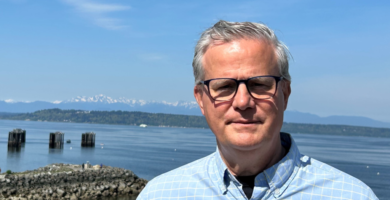When Citibike debuted in New York City eleven years ago, Hasidic Jewish leaders in South Williamsburg, Brooklyn tried to keep the bike-share program out of their neighborhood. Why? The same reason why another Brooklyn ultra-Orthodox community—Borough Park—stopped bike lanes from coming into their enclave: They didn’t want “scantily-clad” cyclists rolling disturbing their “peace.”
Although the Hasidim tend to vote as a bloc (including, ahem, for Donald Trump), not everyone was against Citibike. And when it finally came to their neck of the woods, the Hasidim—the men, anyway—couldn’t get enough of it.
I think we saw so many black-hatted bearded men pedaled blue Citibikes down Kent Avenue and Havemeyer Street, their tzitzits fluttering behind them for at least one of the reasons why hipsters in tank tops twiddled along Berry Street Although they have a reputation for being trust-fund kids whose parents buy condos for them, many hipsters are living with roommates in cramped quarters. And the Hasidim tend to have large families which, even in a large apartment or house, doesn’t leave much room for anything else.
All of this came to mind when I read that Boston is about to become the first city to add cargo bikes to its bike share program. Planners hope and anticipate that this new service, like Bluebikes, will become popular and offer an alternative to cars for people who must haul cargo and children. If Bostonians embrace the shared cargo bikes as they have Bluebikes, I think it will be in part for the same reasons Hasidim in South Williamsburg and hipsters on the North Side embraced Citibike. If people can’t store a regular bicycle in their living space, how would they fit a cargo bike?
I would be interested to see whether my hometown of New York follows Boston’s lead—which it does more often than New Yorkers care to admit. (Example: Boston opened the first subway system, a decade before New York’s.)


